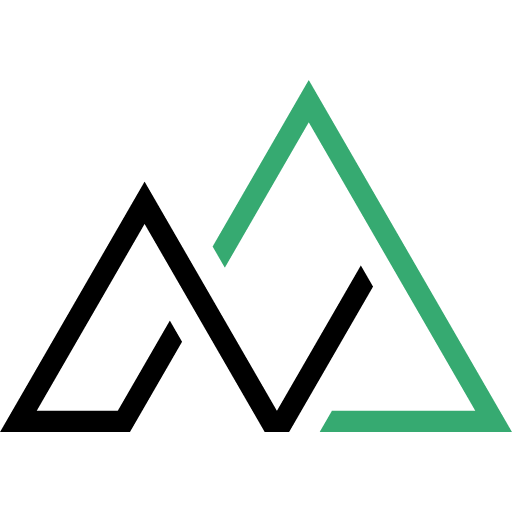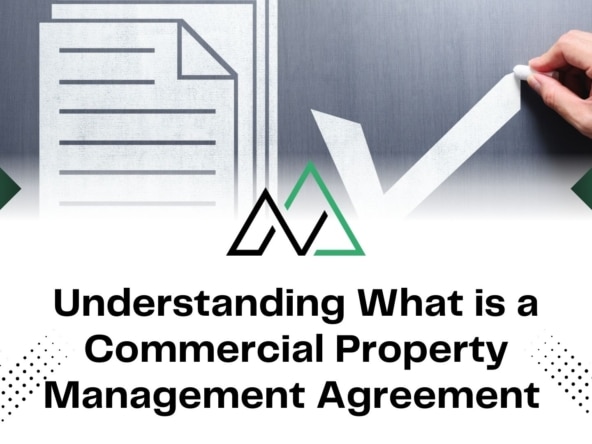Buying a second home in Canada is a big financial step. It needs careful planning and smart thinking. Real estate investing can help you grow your property collection or add more living space.
Thinking about a vacation home, an investment, or a place for family? Knowing how to buy a second home is key. New Homes Alberta helps guide you through this complex process. They make sure you make smart choices at every step.
Canada’s real estate markets offer many chances for buyers. You can find everything from city condos to country homes. Before you buy, think about your money, goals, and what you need in a home.
Key Takeaways
- Understand your primary motivation for purchasing a second property
- Evaluate financial readiness and budget constraints
- Research possible locations and property types
- Explore different financing options in Canada
- Consider rental income and tax effects
- Get advice from real estate experts for tailored help
Understanding Second Homes vs. Investment Properties

Understanding the Canadian real estate market is key. Knowing the difference between a vacation property and an investment property is important. Each has its own financial and legal aspects that affect your plans.
Choosing between a second home and an investment property is a big decision. Both have their own financial and legal rules. These rules can greatly impact your future in real estate.
Owner-Occupied Properties
Second homes are for personal use and fun. They have a few main features:
- Located in places you want to visit
- Must be used by the owner for at least 14 days a year
- Can be rented out for up to 180 days a year
- Need a down payment of at least 10%
Investment Property Considerations
An investment property is different from a vacation home. It’s bought to make money and grow wealth over time.
- Chosen for its rental demand
- Focuses on making more money and growing in value
- Needs more work to manage and keep up
- Requires a down payment of at least 15%
“Real estate investing is not about owning property, but about understanding market dynamics and strategic positioning.” – Canadian Real Estate Expert
Multi-Unit Dwelling Classifications
Some properties offer a mix of personal use and making money. Multi-unit dwellings let you live in one unit and rent out others. This is a unique way to own property.
Knowing these differences helps you make choices that fit your goals and lifestyle.
Current Market Requirements for Second Home Purchases

The Canadian real estate market for second homes has seen big changes. Demand for vacation and investment properties has gone up by 100%. This is great news for those looking to buy a second home.
Getting a mortgage for a second property is complex. Buyers need to meet several financial criteria to get vacation home financing.
- Down payment requirements vary by property type
- Mortgage stress tests are mandatory
- Income qualifications play a critical role
Starting December 15, 2024, big changes will hit the mortgage world. The limit for insured mortgages will go from $1 million to $1.5 million. This means more people can buy second homes.
| Property Type | Down Payment | Qualification Criteria |
|---|---|---|
| Recreational Property | 5-20% | Stress test required |
| Investment Property | 20-35% | Projected rental income considered |
| Vacation Home | 5-20% | Additional income verification |
Lenders like ATB are now more open to second home purchases. This is true in places like Banff and Jasper. They offer flexible mortgage options to meet the growing demand.
The key to successful second home financing is understanding your complete financial picture and preparing documentation that demonstrates your ability to manage multiple property expenses.
How to Buy a Second Home: Essential Steps and Requirements
Buying a second home in Canada needs careful planning. You must understand the financial requirements. This includes mortgage qualification, down payments, and credit scores.
Before buying a second home, you’ll face a detailed financial check. Lenders look at several important factors to decide if you can get a mortgage.
Mortgage Qualification Criteria
Getting a mortgage for a second home has its own rules. You’ll need to show:
- Stable income
- Good credit history
- Adequate debt-to-income ratio
- Passing the mortgage stress test
Down Payment Requirements
Down payments for second homes depend on the property and its use. Here are some common scenarios:
| Property Type | Maximum Financing | Down Payment |
|---|---|---|
| Year-round Second Home | 95% | 5% |
| Seasonal Cottage | 90% | 10% |
| Multi-Unit Rental Property | 80% | 20% |
Credit Score Requirements
Your credit score is very important for a second home mortgage. Lenders want to see:
- A credit score of 680 or higher
- Little to no outstanding debts
- Consistent payments
- Low credit use
Pro tip for aspiring second home buyers: Improve your credit score early to boost your mortgage approval chances.
Preparation and financial discipline are key to successfully purchasing a second home in Canada.
Financing Options for Your Second Property

Buying a second property needs smart financial planning and the right financing. Homeowners have many ways to get funds for their dream home or investment.
Using home equity for a second home is a good strategy. Canadian homeowners can use their primary home’s value in different ways:
- Home Equity Line of Credit (HELOC)
- Home equity loans
- Mortgage refinancing
- Specialized investment property loans
Knowing about financing options can help a lot when buying a property. Let’s look at the best ways to get funds.
| Financing Method | Maximum Borrowing | Interest Rate Range |
|---|---|---|
| HELOC | Up to 65% of home value | Prime + 0.5% |
| Home Equity Loan | Up to 90% of home equity | 4.5% – 7.5% |
| Retirement Account Borrowing | Up to $10,000 penalty-free | Varies |
Innovative financing approaches like rent-to-own and seller financing offer other options. They help those who can’t meet traditional mortgage needs.
Investors and homeowners should think about their finances. They should look at their credit score, debt, and future goals when choosing financing.
Using Home Equity to Finance Your Purchase
Home equity can be a powerful tool for buying a second home in Canada. Homeowners can use the value in their primary home to fund new investments. This strategy helps in purchasing additional properties.

When looking at mortgages for second homes, knowing about home equity is key. First, you need to figure out how much equity you have. This is done by subtracting your current mortgage from your home’s market value.
For example, a home valued at $800,000 with a $300,000 remaining mortgage balance provides $500,000 in equity.
Canadians have several ways to use home equity for second home investments:
- Home Equity Line of Credit (HELOC)
- Mortgage Refinancing
- Second Mortgage Options
HELOC Options
A Home Equity Line of Credit lets you borrow up to 65% of your home’s value. It’s a flexible option with variable interest rates. This way, you can get funds as you need them for your second home.
Mortgage Refinancing Strategies
Mortgage refinancing lets you borrow up to 80% of your home’s current value. It’s a chance to get more money for your second property. You might also get better interest rates.
Second Mortgage Considerations
Second mortgages allow borrowing up to 80% of your home’s appraised value, minus your current mortgage. They’re useful but come with higher interest rates. You need to plan your finances carefully.
Important note: Using home equity comes with risks, like foreclosure if you miss payments. Always talk to a financial expert to understand the risks of your home equity strategy.
Down Payment Requirements and Changes for 2024

Buying a second home in Canada needs careful planning. This is because down payment rules are changing. Starting December 15, 2024, new rules will affect second home mortgages.
The new rules have a tiered down payment system for homes up to $1.5 million:
- 5% down payment on the first $500,000
- 10% down payment on the portion between $500,000 and $1.5 million
- 20% down payment for homes priced at $1.5 million or more
These changes mean second home buyers need to plan differently. Different property types will have varying down payment requirements:
- Owner-occupied properties (1-2 units): 5% down for homes under $500,000
- Owner-occupied properties (3-4 units): 10% down payment
- Non-owner-occupied rental properties: Typically 20% down payment
Lenders often want a 20% down payment for second homes. This can lead to better loan terms and avoid private mortgage insurance.
Pro tip: Start saving early and aim for a higher down payment. This will help you buy more and save on long-term costs.
Tax Implications of Second Home Ownership
Understanding taxes for second homes is key. Canadian property owners need to know about important tax rules. These rules can greatly affect their money plans.

Investors must grasp the complex rules of owning a second home. The Canada Revenue Agency (CRA) has clear guidelines. These help manage taxes for vacation and investment homes.
Capital Gains Considerations
Capital gains tax is a big deal for second home owners. Starting June 25, 2024, the tax rules are:
- 50% inclusion rate for the first $250,000 of capital gains
- 66.67% inclusion rate for gains over $250,000
- Based on the property’s value increase from purchase
Property Tax Requirements
Property taxes for second homes differ by area. Owners must keep track of these taxes. They help fund local towns.
| Property Type | Tax Considerations | Potential Deductions |
|---|---|---|
| Personal-Use Property | Full property tax assessment | Limited deduction options |
| Vacation Rental Income Property | Prorated tax calculations | Expense deductions available |
Deductible Expenses
Vacation rental income can lead to tax benefits. Owners can deduct several costs from their second home. These include:
- Mortgage interest
- Property maintenance costs
- Insurance premiums
- Utility expenses
Smart tax planning can increase deductions. This can lower tax bills for second home owners.
Location Selection and Property Evaluation

Choosing the right location is key when buying a vacation home or looking into real estate investing in Canada. Your location choice affects the property’s value, rental income, and how much you’ll enjoy it.
When looking at places for your second home, think about these important points:
- How close it is to big cities
- The local amenities and fun activities
- If the property value can go up
- The demand for rentals
Canada’s provinces have different benefits for vacation property investments:
| Province | Key Attractions | Investment Opportunity |
|---|---|---|
| British Columbia | Rocky Mountains, Pacific coastline | High tourism, strong rental market |
| Ontario | Lakes, outdoor activities | Diverse property options |
| Quebec | Cultural experiences, charming towns | Unique market opportunities |
Choosing the right property type is also vital in real estate investing. Here are some options:
- Condos/Townhouses: Easy to maintain, in the city
- Single-family homes: More privacy, can rent out bigger
- Cabins/Cottages: Special market for nature lovers
Team up with a local real estate expert who knows the market well. They can guide you through location-specific details and find properties with great investment prospects.
Rental Income and Management
Turning a second property into an investment can be smart for Canadian homeowners. Getting rental income from it can be a great way to earn more. It also helps make the most of your property.

Managing a rental property well needs good planning and strategy. New investors often do well with simpler places like condos or single-family homes.
Understanding Rental Market Dynamics
The location of your property is very important. Places near:
- Public transportation
- Educational institutions
- Healthcare facilities
- Growing job markets
Usually attract better tenants. This can lead to more consistent rental income.
Financial Considerations
Investors must think about costs and income. Rental income can help pay off your mortgage. This makes investing in a rental property a good financial choice.
Important financial points to consider are:
- Potential monthly rental rates
- Property maintenance costs
- Tax deductible expenses
- Insurance requirements
Tax and Expense Management
There are many tax deductions for rental property owners. These include:
- Property taxes
- Utility costs
- Professional management fees
- Advertising expenses
- Insurance premiums
Talking to financial experts can improve your property’s financial health. It also helps follow local laws.
Insurance Requirements for Second Properties
Protecting your vacation home needs special insurance. It’s different from the usual homeowner policies. Owners of second homes face unique challenges that need careful thought and full coverage.
Finding the right insurance for a second home involves knowing key factors. It’s not the same as insurance for your main home. Second home insurance must handle risks from less use and different property uses.
- Property damage protection
- Third-party civil liability coverage
- Seasonal residence specific provisions
- Additional risk mitigation strategies
Important insurance points for vacation homes include:
| Coverage Type | Protection Details |
|---|---|
| Fire Damage | Comprehensive property restoration |
| Theft Protection | Replacement of stolen items |
| Water Damage | Repairs from unexpected flooding |
| Liability Coverage | Financial protection against property-related incidents |
Insurers suggest certain steps for second home insurance, mainly for unoccupied homes. Putting in security systems, checking the property often, and emptying pipes in winter can lower risks and insurance costs.
When picking insurance for your vacation home, talk to a professional insurance broker. They know the special needs of second home insurance. They can guide you through policy choices and ensure your property is well-protected.
Maintenance and Operating Costs

Owning an investment property has many ongoing expenses. These can greatly affect your financial planning. It’s key to understand these costs for successful property ownership in Canada.
Annual operating costs for a typical property are quite high. Homeowners face a variety of expenses beyond the initial purchase price:
- Property taxes averaging $3,700 annually
- Utility costs around $2,500 per year
- Homeowners insurance at $1,250 annually
- Routine maintenance expenses of $950 per year
- Water and trash services costing $850 annually
Regional differences greatly affect operating costs. For example, vacation properties in New England might have higher expenses than those in the East South Central Division. The age of your property also matters, with older homes needing more repairs.
Climate change adds to the financial burden. Rising insurance costs and flood risks can significantly increase your property’s expenses. It’s vital to have a solid emergency fund for unexpected repairs and maintenance.
Smart property investors budget 3-6% of their home’s value for annual operating expenses.
Strategic planning can help reduce these costs. Look into rental income, schedule regular maintenance, and research local expense trends before buying a second home.
Legal Considerations and Documentation
Real estate investing in Canada needs careful legal attention. Knowing how to buy a second home is key. It protects your investment and follows local laws.
Getting a second home right means being well-prepared legally. Property rights and how you own it are very important.
Property Rights and Ownership Structures
Canadian investors must pick their ownership wisely. The main options are:
- Sole ownership for full control
- Joint tenancy for shared investments
- Corporate ownership for tax benefits
- Trust-based ownership for estate planning
Critical Contract Requirements
Buying a second home means reviewing important documents:
- Purchase agreement
- Mortgage documents
- Title search records
- Property disclosure statements
Documentation and Compliance
Real estate investing must follow strict laws. You need to:
- File Form T2091 (IND) for principal residence
- Keep accurate property use records
- Report any capital gains
- Follow local zoning and rental laws
Investors must truthfully report property use. Only one property can be a principal residence each year. Changing use to rental might mean reporting capital gains.
Working with Real Estate Professionals
Investing in real estate can be complex. Learning to buy a second home is easier with the right help. Working with experts can greatly improve your experience.
Choosing the right team is important. You need to consider several key professionals:
- Real Estate Agents: They know the local market well and offer valuable advice.
- Mortgage Specialists: They guide you through financing options.
- Legal Advisors: They handle all the legal paperwork.
- Home Inspectors: They check the property’s condition.
Real estate pros are key in buying a second home. In Ontario, they can explain programs like the Insured Second Home Mortgage Program. This program lets you put down as little as 5% in certain cases.
A second home must be owner-occupied for at least 14 days annually to qualify as a residential property.
When working with professionals, keep these tips in mind:
- Check their credentials.
- Talk about your real estate goals.
- Learn about the local market.
- Look into financing options.
Getting help is even more important when buying outside your area. They offer local insights, help evaluate properties, and make the process smoother.
Conclusion
Buying a second home in Canada needs careful planning. Real estate investing is more than just picking a property. You must understand financing, market trends, and your financial situation well.
Buying a second home involves many decisions. You need to check your finances, look at mortgage options, and more. It’s important to do personal financial checks, keep your credit score high, and think about extra costs of owning a property.
New Homes Alberta is here to help with your real estate goals. Our team offers personalized advice for your situation. With our help, you can make your second home a smart investment. Call us at (403) 305-9167 to start your journey.
Success in owning a second home comes from making informed choices, being financially ready, and getting professional help. With the right steps and support, your investment can improve your life and finances.
FAQ
What’s the difference between a second home and an investment property?
How much down payment do I need for a second home in Canada?
FAQ
What’s the difference between a second home and an investment property?
A second home is for personal use, like a vacation spot. An investment property aims to make money through rental income or value increase. Second homes are for personal enjoyment, while investment properties focus on making money.
How much down payment do I need for a second home in Canada?
Down payment needs vary by property value and type. For homes up to
FAQ
What’s the difference between a second home and an investment property?
A second home is for personal use, like a vacation spot. An investment property aims to make money through rental income or value increase. Second homes are for personal enjoyment, while investment properties focus on making money.
How much down payment do I need for a second home in Canada?
Down payment needs vary by property value and type. For homes up to $1.5 million, 5-20% down is common. Investment properties might need more. Your down payment depends on your credit score, income, and the lender’s rules.
Can I use the equity in my primary home to buy a second property?
Yes, you can use your home equity for a second home. Options like a Home Equity Line of Credit (HELOC) or refinancing can help. But, think carefully about the risks and financial impact.
What tax implications should I be aware of when buying a second home?
Buying a second home has tax implications. You might face capital gains tax when selling, property taxes, and deductions for mortgage interest and maintenance if you rent it out.
How do I qualify for a mortgage on a second home?
To qualify, you need a good credit score, pass a stress test, show stable income, and prove you can afford both mortgages. Lenders check your debt-to-income ratio and financial stability closely.
What insurance do I need for a second home?
You’ll need special insurance for your second home. This might include coverage for empty periods, rental use, and location-specific risks. You might need extra policies like flood insurance or short-term rental insurance.
Is renting out my second home a good investment strategy?
Renting out a second home can be a good investment. But, you need to research the market, understand local laws, and be ready for landlord duties. Consider location, rental income, and costs carefully.
What are the biggest challenges of owning a second home?
Big challenges include managing maintenance costs, dealing with empty periods, extra taxes and insurance, and the financial burden of two properties. Good financial planning and understanding costs are key to success.
How do I choose the right location for a second home?
Look at appreciation, amenities, rental demand, local market, and your needs. Visit often, and talk to local experts to make a smart choice.
What legal considerations should I be aware of when buying a second home?
Important legal points include property rights, reviewing agreements, local laws, and ownership types. A real estate lawyer can help you understand these.
Can I use the equity in my primary home to buy a second property?
Yes, you can use your home equity for a second home. Options like a Home Equity Line of Credit (HELOC) or refinancing can help. But, think carefully about the risks and financial impact.
What tax implications should I be aware of when buying a second home?
Buying a second home has tax implications. You might face capital gains tax when selling, property taxes, and deductions for mortgage interest and maintenance if you rent it out.
How do I qualify for a mortgage on a second home?
To qualify, you need a good credit score, pass a stress test, show stable income, and prove you can afford both mortgages. Lenders check your debt-to-income ratio and financial stability closely.
What insurance do I need for a second home?
You’ll need special insurance for your second home. This might include coverage for empty periods, rental use, and location-specific risks. You might need extra policies like flood insurance or short-term rental insurance.
Is renting out my second home a good investment strategy?
Renting out a second home can be a good investment. But, you need to research the market, understand local laws, and be ready for landlord duties. Consider location, rental income, and costs carefully.
What are the biggest challenges of owning a second home?
Big challenges include managing maintenance costs, dealing with empty periods, extra taxes and insurance, and the financial burden of two properties. Good financial planning and understanding costs are key to success.
How do I choose the right location for a second home?
Look at appreciation, amenities, rental demand, local market, and your needs. Visit often, and talk to local experts to make a smart choice.
What legal considerations should I be aware of when buying a second home?
Important legal points include property rights, reviewing agreements, local laws, and ownership types. A real estate lawyer can help you understand these.





